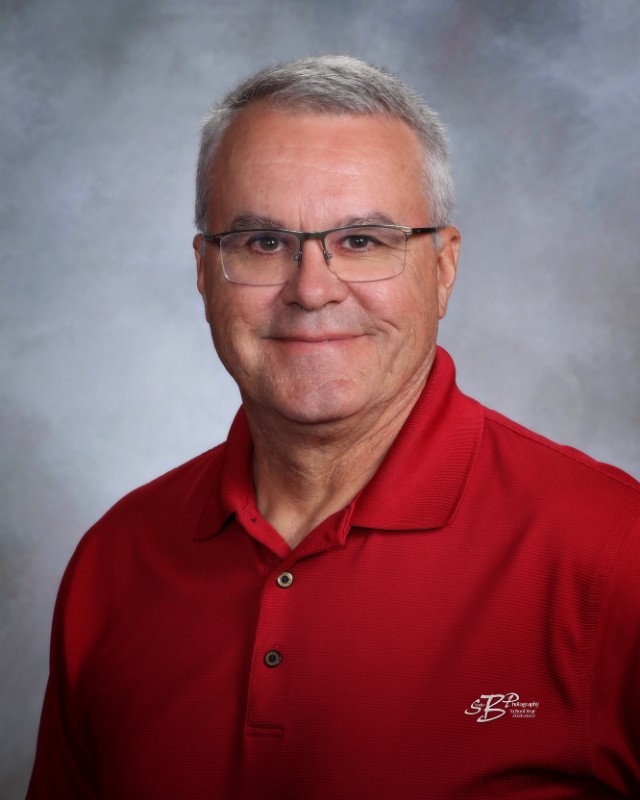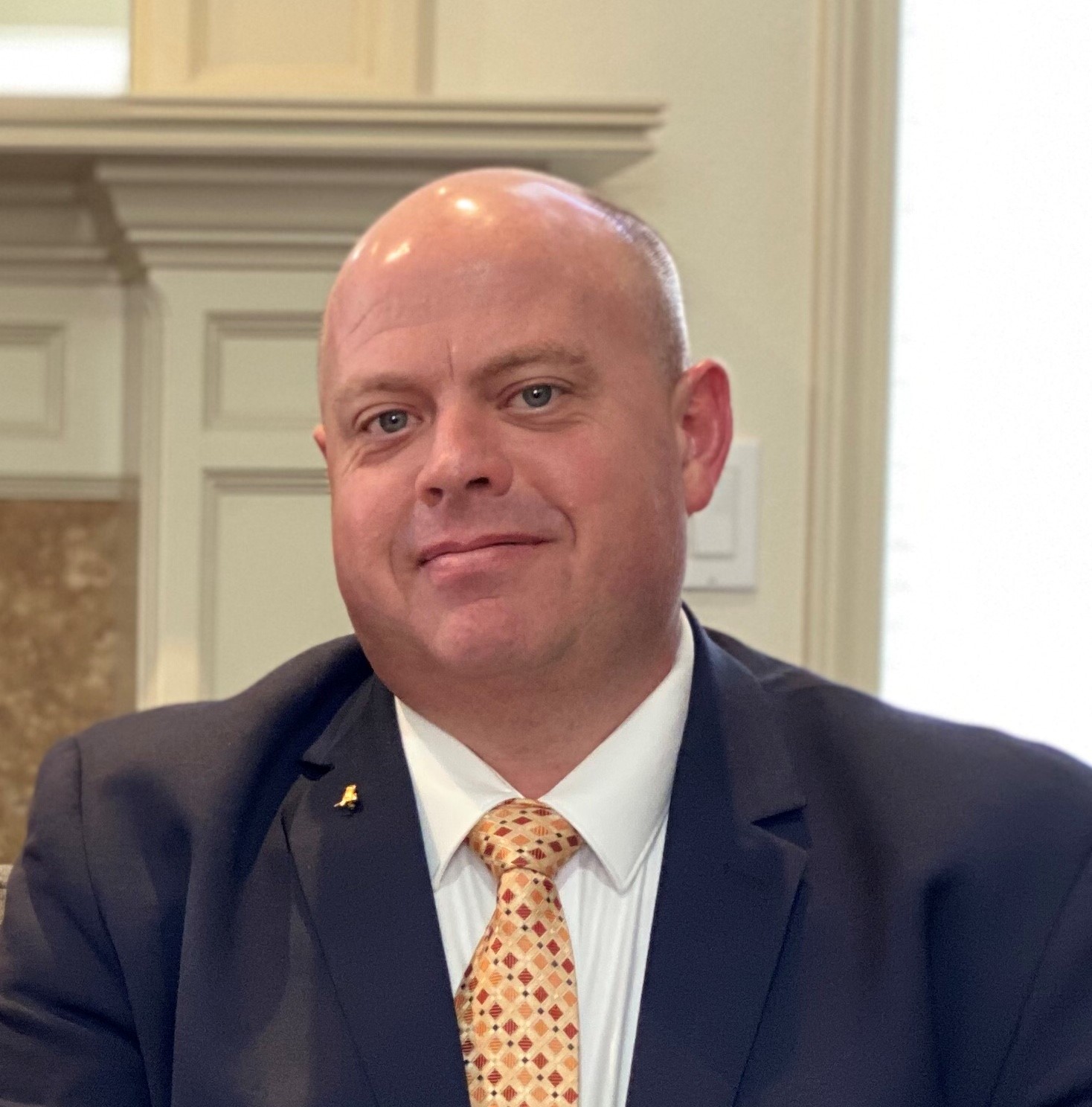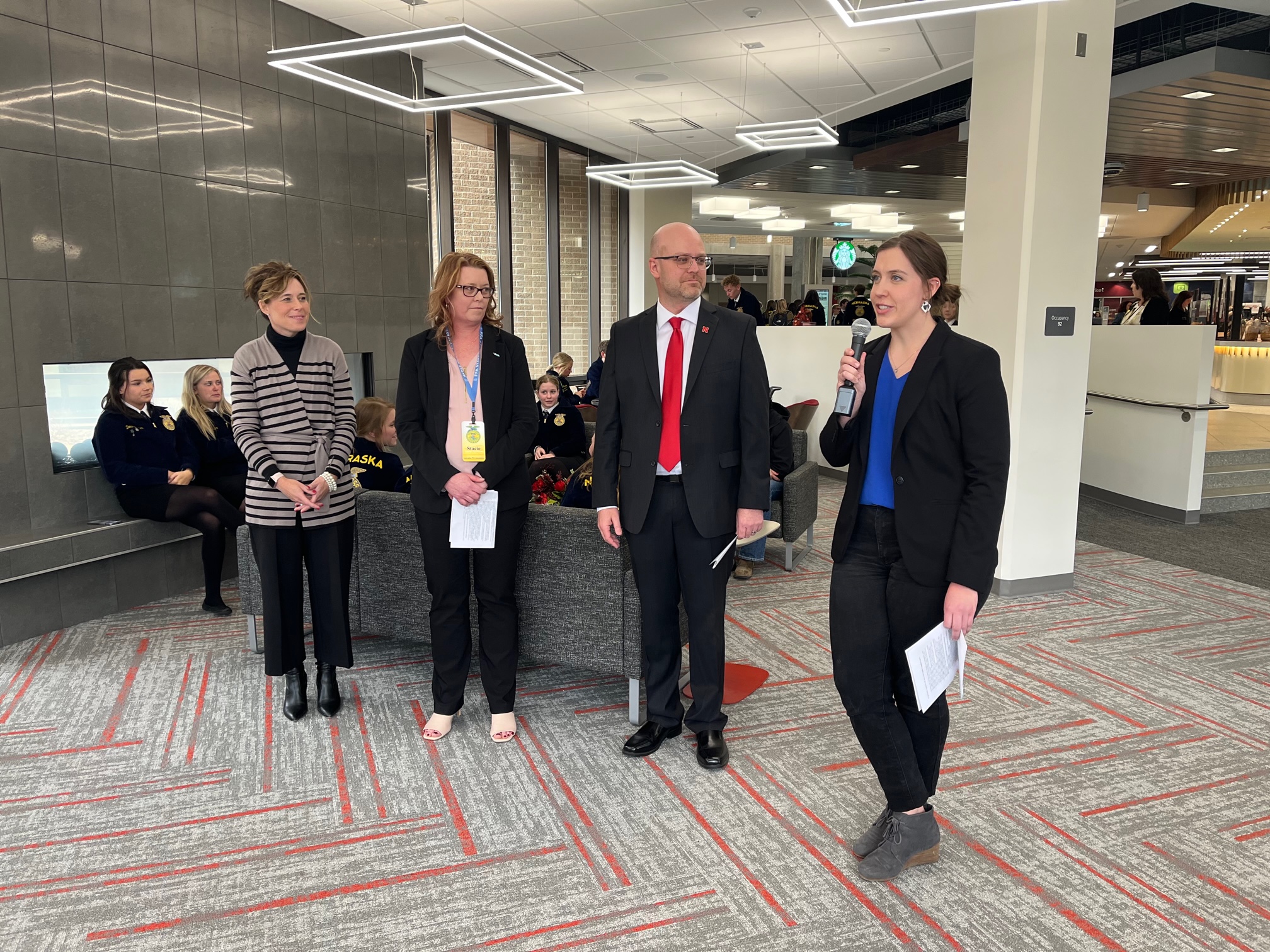
The University of Nebraska–Lincoln’s Agricultural Leadership, Education and Communication department on April 6 announced major steps to strengthen agricultural teacher training and support.
ALEC has hired two ag educators — one in northeast Nebraska, the other in the Panhandle — to support ag teachers throughout their regions. In addition, a new tenure-track faculty member at ALEC, with firsthand experience as a high school ag teacher and FFA adviser, will focus on enhanced teacher preparation and other supportive strategies.
University and Nebraska FFA leaders announced the new hires during a news conference on East Campus on the first day of the Nebraska FFA State Convention. The three new hires will work to improve and retain current ag educators, attract new teachers to the field and work to better meet the needs of ag educators of all levels of experience across the state.
Monty Larsen, who has wide-ranging experience as a rancher and high school ag instructor, will help ag teachers in northeast Nebraska. The satellite ALEC faculty member in the Panhandle will be Troy White, a doctorate earner who comes to Nebraska from a faculty position in ag teacher preparation and ag-related STEM education at South Dakota State University.
Becky Haddad, a doctorate earner currently teaching agricultural education at the University of Minnesota, will hold the tenure-track faculty position in ALEC. She was a high school ag teacher for five years in her native Minnesota.
“We’ve seen in Nebraska unprecedented growth of new ag education programs … and lots of communities wanting to add teachers, add programs,” said Mark Balschweid, ALEC department head.
In 2010, the number of Nebraska high schools with an ag instructor was 133. Now the number is 202. Some schools have two ag teachers, and a few have three.
Nebraska’s number of high school ag teachers totals 230. Yet, supply is coming up short of the demand — statewide, 64 positions have opened up so far this school year, with 21 remaining unfilled.
“We’re already hearing from superintendents and principals from across the state saying, what can we do to attract candidates?” says Matt Kreifels, associate professor of practice in ALEC specializing in teacher preparation and leadership.
The stresses from the COVID-19 crisis have been one factor behind the ag teacher shortage. Another is the wide-ranging instructional expectations for ag teachers, who in many cases are expected to be skilled in everything from the latest ag science developments to crop management to woodworking to welding. And it’s especially important for beginning teachers to receive mentoring and support tailored to their specific needs.
Haddad learned about such challenges during her five years as a high school ag instructor and FFA adviser in Minnesota. As “a single-person department teaching everything from welding to Minnesota wildlife to animal science, giving students a little taste of everything,” she found support and input from the community to be vital in helping the program succeed. Such collaboration, she said, “provides a richer environment for everybody involved when you have a whole team on board and it’s not just you.”
Teacher preparation has been one of the central focuses for Haddad in her current position at the University of Minnesota. Another focus for her: strategies to help ag instructors look to their mental health by properly balancing the stresses from work and home. The strategies, she said, aim to help ag teachers “find a more palatable work and family balance, to manage your total program, to think about what are those things that I choose to take on and recognizing those things as choices.”

Having the two new satellite ag educators can provide multiple benefits, ALEC leaders said.
“These satellite educators will have the ability to work with teachers to find out what are the needs, what are the challenges they’re facing, and then connect with the experts here on campus and in the research centers in finding how we can best serve and meet those needs,” Kreifels said.
White said: “We have the time and the flexibility to go in and ask, what do you need, and hopefully meet that need for as many teachers as possible.”
Melissa Bonifas, an ag teacher at Blue Hill High School in Webster County, knows Larsen and said his breadth of experience — as a rancher and an ag teacher with three schools systems — will be especially valuable in helping beginning teachers.
“I think it will be so helpful to have someone who has been in the business for quite a while and has handled all types of situations,” said Bonifas, who served on the search committee that interviewed candidates for the ALEC faculty position. “It’s just going to be phenomenal for people to be able to ask questions and get real help when they need it.”
Both Larsen and White have strong ag science backgrounds, seen as a major plus for their duties.
“We’re going to work on having STEM-based ag curriculum that teachers can take and modify,” White said. “Hopefully that helps free up their time and give them some quality resources that they can go through and adapt to what they need in their local classroom.”
Larsen’s duties will include presenting programs at Nebraska Extension’s Haskell Agricultural Laboratory in Concord, about 15 miles north of Wayne. The 550-acre site includes extensive cropland, farming and ranching facilities, an arboretum, pollinator gardens and beehives.
“I’m really impressed that for a facility of that age, it’s really been very well taken care of,” Larsen said.
Possibilities, he said, include hosting events on the latest science curriculum developments, as well as career days that can introduce students to ag research.
The site, he said, “is an outstanding facility that could be a hub” for the northeast Nebraska education compact whose members include 21 school districts plus Nebraska’s College of Agricultural Sciences and Natural Resources and other higher-education institutions.
The career opportunities in modern agriculture range widely, ALEC leaders have said, with about 300 career choices in all. In addition to direct production agriculture, examples include ag-related business management, software development, laboratory analysis, environmental studies — and high school ag instruction.
“If we’re going to talk about preparing people for careers hopefully in Nebraska, this program is the premier one,” said ALEC graduate Matt Dolch, district manager with Syngenta for sales of NK Seeds in Lincoln.
The opportunities are there for urban youths as well as rural ones, said Dolch, who served on the search committee that interviewed candidates for the ALEC faculty position.
Bonifas, the ag teacher in Blue Hill, agreed.
“If the kid is interested in agriculture, there is a career out there for them,” she said.
The new initiatives that ALEC is pursuing, Kreifels said, have particular importance by providing the department with “the person power, the human capacity, to support beginning teachers and current teachers to help retain them in the profession.”
With these new hires and the strategy behind them, “It feels like we’re on the start of a new era in ag education in Nebraska.”











